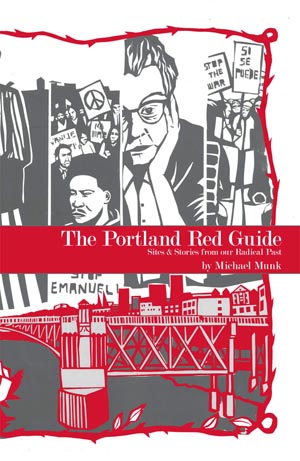I have a really great joke I’ve been telling lately, when someone asks me what I’m studying in school. First I say, “Oh, I’m getting my masters in Book Publishing,” and he or she pretends to be impressed, and then I say, “It’s really too bad that the entire industry is folding.”
I tell pretty much the same joke about a lot of things. I like to talk, for example, about Portland “folding”; about the United States “folding”; about the ozone layer, “folding.” There’s a lot of weird stuff going on, and I spend way too much time on the internet, trying to figure out how to make beef tallow candles or construct a tepee out of tall grass. The reality of the impending apocalypse is something that my generation in particular is pretty comfortable with; it informs our skill sets, our political opinions, and, most importantly, our fashion sense. So when I start to wonder about the future of publishing, the first thing I have to consider is whether or not we’ll have salt to put on our radio-active cockroaches in 2038, let alone anything to read.
But, even when my outlook is a little more grounded, it still seems clear to me that whatever’s going to happen to the book trade in 20 years will be something of a mystery. I like to imagine that, despite all these weird new Kindles and kids who only have the attention span to read graphic novels (count me into that group, by the way), people will always be cranking out amazing writing, and there will always be an audience for it. The word “book” might evolve, its definition might do some major expanding, but the basic concepts will remain the same. I don’t see a lot of point in speculating about eReaders and web 3.0 and the depleted rain forests. I’m learning this business because I love words, not because I love books.










